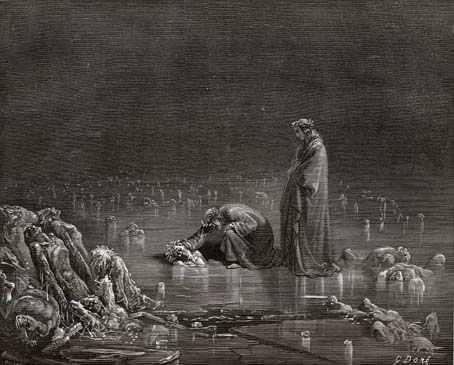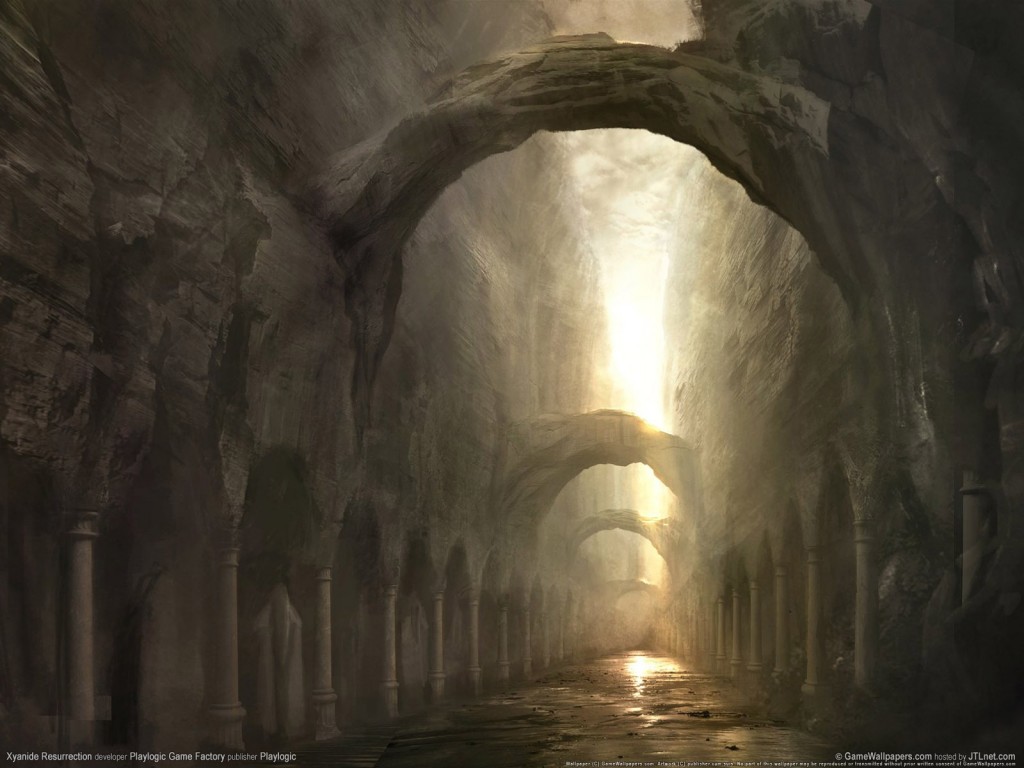Lessons Repository
Some Thoughts on the meaning of “Hades”
 As promised to my Systematic Theology Class:
As promised to my Systematic Theology Class:
In the Scriptures[1], two very important interchangeable terms are used between the Old and New Testaments that have a place in the authoritative Word on life after death. The Hebrew word, Sheol, and the Greek word, Hades, are words of the basic same designation from the Old Testament period and books to that of the New Testament respectively.[2] Each of them essentially mean the “grave, pit or death” in their general usage.[3] This is more so in the Hebrew usage of Sheol than that of the New Testament and Hades. Along with this general view, a nuanced view is present in the Old Testament usage and even more pronounced in the New Testament to carry the idea of judgment and possibly punishment.
Read the rest here:
[1] All biblical references and quotations will be taken from the New American Standard Update of the Holy Bible, revised in 1995.
[2]Walter A. Elwell and Barry J. Beitzel, Baker Encyclopedia of the Bible, Map on Lining Papers. (Grand Rapids, Mich.: Baker Book House, 1988), 953.
[3] Ibid.
DailyTheocentrism: Jesus was 100% Man during the Incarnation, but not like any other man . . .
I have heard it said time and again that Jesus was a man just like us, often times because of passages like Luke 2:52. However, when I read passages like John 1:1-18, Colossians 1:15-20, Hebrews 1:1-3 I do not get that sense. See what you think on one of them:
1 In the beginning was the Word, and the Word was with God, and the Word was God.
2 He was in the beginning with God.
3 All things came into being through Him, and apart from Him nothing came into being that has come into being.
4 In Him was life, and the life was the Light of men.
5 The Light shines in the darkness, and the darkness did not comprehend it.
6 There came a man sent from God, whose name was John.
7 He came as a witness, to testify about the Light, so that all might believe through him.
8 He was not the Light, but he came to testify about the Light.
9 There was the true Light which, coming into the world, enlightens every man.
10 He was in the world, and the world was made through Him, and the world did not know Him.
11 He came to His own, and those who were His own did not receive Him.
12 But as many as received Him, to them He gave the right to become children of God, even to those who believe in His name,
13 who were born, not of blood nor of the will of the flesh nor of the will of man, but of God.
14 And the Word became flesh, and dwelt among us, and we saw His glory, glory as of the only begotten from the Father, full of grace and truth.
15 John testified about Him and cried out, saying, “This was He of whom I said, ‘He who comes after me 1has a higher rank than I, for He existed before me.’ ”
16 For of His fullness we have all received, and grace upon grace.
17 For the Law was given through Moses; grace and truth were realized through Jesus Christ.
18 No one has seen God at any time; the only begotten God who is in the bosom of the Father, He has explained Him.
John and Paul and the author of Hebrews do not seem to have that sense – namely that Jesus is just like us, in any way. He was presented temptation, just like us – but He was not/did not respond/ did not end up to be “just like us.”
Maybe, in light of ALL of Scripture, we might see this for what it is: a product of Western Modernity upon the text when we hear of a Jesus, just like us; a Jesus who grew in progressive knowledge of His own deity/lordship/sonship.
Read here for more on this, especially in the section entitled, Narrative Flow:
Discipleship 2 – The Motivation
 As we saw in the first post, we have been sent on mission. Now, I did neglect to go back and back to THE Mission, which is to glorify God – to radiate and reflect His glory. That is the Big Picture. This has also been born into an organism – not an organization – called the Church – but making followers of the LORD predates the Church, only now the disciple-making has taken a very personal fulfillment in God, the Son. We are to Glorify God and do what He has said to do, which is also glorifying God.
As we saw in the first post, we have been sent on mission. Now, I did neglect to go back and back to THE Mission, which is to glorify God – to radiate and reflect His glory. That is the Big Picture. This has also been born into an organism – not an organization – called the Church – but making followers of the LORD predates the Church, only now the disciple-making has taken a very personal fulfillment in God, the Son. We are to Glorify God and do what He has said to do, which is also glorifying God.
Having said that, we might ask “Why should we be a disciple of Christ?” Is this just a modern movement? Is it biblical?
Well, to get right (back) to the point, we do it because we were told to, both in Matthew 28:18-20 and in the echo of Jesus’ call to His disciples, when He said, “Follow Me.” That call still echoes today and will continue to echo until He returns. We are Christ’s disciples because the God of the universe has told us to be.
Also, implied in the “Why?” question, is “What’s in it for me?”
Discipleship – 1: The Mission
What if we were given one thing to do – just one main mission – and we didn’t do it? Now, this does not imply that this one thing is an all encompassing definition of our lives and all of the reality adjacent to our lives – but, it is the one thing – the main thing we are to do. I guess it would depend upon who gave us the mission and what was at stake . . . right?
When reading Acts 14, specifically Acts 14:21-28, I see an interesting, rather arresting pattern. The text says that Paul “made many disciples . . . strengthened the souls of the disciples . . . and spent a long time (not a little time) with the disciples.” This is a profound narrative. Paul could have, according to some – should have, kept working “for the faith”, since all of these people were already converts. Yet, he spent precious time encouraging and building up the Church and he spent large amounts of that time. Why? Why would he do that?
